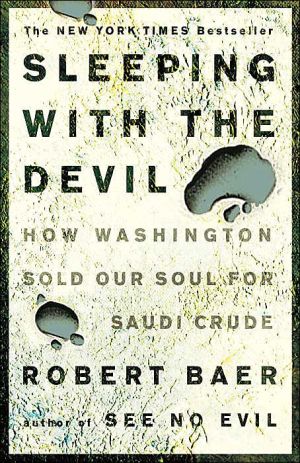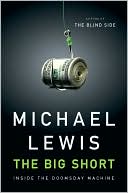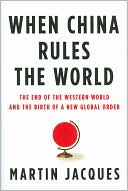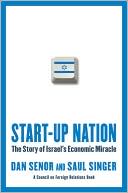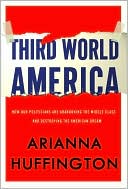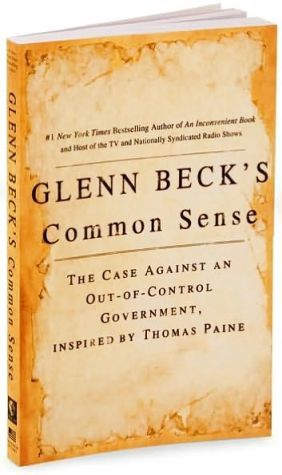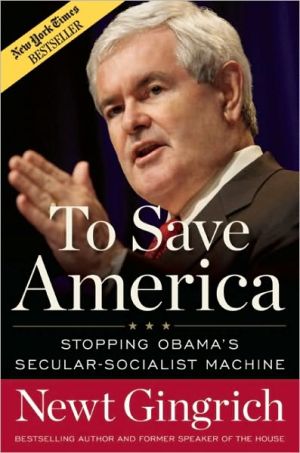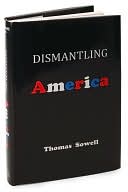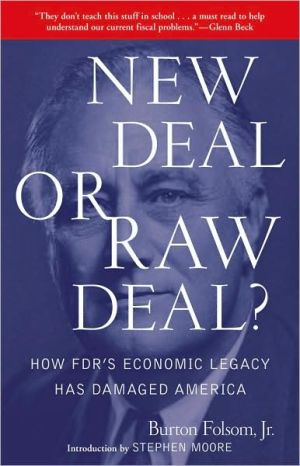Sleeping with the Devil: How Washington Sold Our Soul for Saudi Crude
“Saudi Arabia is more and more an irrational state—a place that spawns global terrorism even as it succumbs to an ancient and deeply seated isolationism, a kingdom led by a royal family that can’t get out of the way of its own greed. Is this the fulcrum we want the global economy to balance on?”\ In his explosive New York Times bestseller, See No Evil, former CIA operative Robert Baer exposed how Washington politics drastically compromised the CIA’s efforts to fight global terrorism. Now in...
Search in google:
Former CIA operative Robert Baer examines the dangers behind America's collaboration with Saudi Arabia. Nominally based on a harmony of interests - the Saudis sold their oil to the American government very inexpensively - what we offered in exchange has damaged our position in the Middle East and left our country vulnerable to economic and terrorist threats. Baer goes behind the scenes to show how the U.S. willingly overlooked the corruption of the Saudi royal family, its financing of violent Islamic fundamentalist groups that spread hatred of the West throughout Saudi society, and its bribery of American officials. From a close-up with a corrupt Arab family to the inside scoop on how we helped fund the Taliban, Baer shows what's at stake in our pursuit of oil. The Washington Post Strange is perhaps too kind a word for an affair the author depicts … as sordid, corrupt and even murderous. Baer, a former CIA case officer whose assignments included postings throughout the Middle East, detests Saudi Arabia. And after reading his book -- or for that matter a newspaper on any given day -- it is hard to begrudge the author his ill will. — Lawrence Kaplan
We Deliver Anywhere\ \ Caesarea, Israel\ April 7, 2001\ The marble Palace perched amid the olive trees above the sea looked like a lot of other posh resort hotels I'd seen around the Mediterranean. The shiny new Mercedes and canary yellow Ferrari parked out front fit right in. I knew that if I poked around a little, I'd find a casino somewhere on the premises.\ It didn't take me long, though, to notice that a couple things were out of place: the pack of little blond boys running around on the front lawn, shouting in Russian, and the young girls wearing identical bandeau bikinis, reading glossy Moscow weeklies by the pool. When the bellboy greeted me in Russian, I knew I had landed on one of those Russian beachheads I'd heard so much about. Since the collapse of the Soviet Union, the Russian mob, Russians fleeing the Russian mob, and just plain rich Russians had been setting up all along the Riviera, including Israel's coastline. The fancier the place, the better. Money never seemed to be a problem. And they liked to keep to themselves.\ I was actually in Caesarea to see a Russian, someone I'd known only by reputation. Yuri, as I will call him, was a merchant of death. He had made a colossal fortune in the early 1990s trading small arms for West African oil. Over the last several years, with capital under his belt and the free run of Russia's state-arms-trading firm, Rosvoorouzhenie, he'd branched out and started peddling arms everywhere. Supposedly, Yuri could put his hands on almost any piece of Russian hardware, from a MIG-31 to a T-80 main-battle tank. But he did have his professional ethics. When a competitor floated the rumor that Yuri was moving weapons-grade uranium, Yuri had him squashed like a Volga tick. It was one thing to earn an honest living fueling civil wars in West Africa, but something entirely different to deal in the nasty stuff.\ I saw Yuri come out of the elevator. Dressed in a pair of pressed Levi's, suede Italian loafers, and a diaphanous white linen shirt, he could have passed for a well-heeled tourist. Slim and sandy haired, he looked younger than his forty-five years.\ We settled in a restaurant where Yuri waited glumly for his coffee. My chitchat about the weather, Caesarea, whatever I could think of that might keep the conversation from sinking into silence, barely got a nod out of him. I stopped talking and took a closer look. His waxy yellow skin told me he hadn't been spending his time on the beach or the links. To judge by the spiderweb of broken blood vessels in his cheeks, he liked to relax with a bottle of vodka.\ My business with Yuri, if you want to call it that, was to do a favor for a friend who wanted to know if Yuri was interested in financing an oil contract, a perfectly legitimate one. My friend figured that the Russian, with all his loose cash, might want to get out of the arms trade and clean up his reputation.\ As soon as Yuri finished his second espresso, I popped the question. I was halfway through it when he held up his hand to stop me. "You're on your way to Syria, our friend tells me," he said.\ He was right. The next day I was flying to Amman, Jordan, and from there to Damascus. The borders between Syria and Israel had been closed ever since Israel's independence over half a century earlier. You had to touch down somewhere else before setting foot in Syria.\ "I'm in the market for Syrian oil," Yuri said. "I'll take as much as they'll give me. And you know what? I'll pay two dollars above market price."\ That was a curveball I hadn't seen coming. I didn't need to be a professional oil trader to understand that Yuri didn't have legitimate Syrian oil in mind—no one pays two dollars a barrel over world market for any oil. What Yuri was after, I had little doubt, was sanction-busting Iraqi oil, currently selling for a discount of ten to fifteen dollars a barrel in Syria. It was impossible to nail down the exact amounts involved—Syria obviously didn't publish figures—but I'd seen estimates that put the total trade above $3 billion a year, a business big enough to attract Yuri and lots of other vultures of the global economy.\ Iraq was glad to have another market for its illicit oil, even at a steeply discounted price. It was thanks to smuggled oil that Saddam Hussein had stayed afloat since the end of the Gulf War. Saddam used the revenues to feed and equip his elite troops and intelligence services—his brutal praetorian guard. The clandestine trade in oil had started as soon as the last American M-16 fired its last round in February 1991. At first the oil moved via small barges hugging either side of the Persian Gulf coast and traveling at night, thereby avoiding detection by the American fleet. Iraq then started smuggling it out by truck, mostly to Turkey and Iran. I had seen miles-long truck convoys when I was in Kurdistan in 1994 and 1995. Syria came late to the game but was more than making up for that in sheer volume. Most oil went through an old pipeline to the Syrian port of Baniyas. Some came in by truck.\ With all the revenue from Iraqi oil sold outside the United Nations-imposed oil-for-food regimen, Saddam did quite nicely. Not only could he pay for the forces that kept him from being overthrown, he had even started reequipping his regular army. Shipments of new Russian goodies were arriving every day. There was also enough money left over to keep Saddam's inner circle, including his vicious son Uday, who ran the oil business, from worrying about a shortage of Cuban cigars, sports cars, and prostitutes. The Iraqi in the street never saw a penny of it.\ Syria didn't do badly, either. By selling the illegal Iraqi oil on its domestic market, Syria freed up the oil it pumped from its own fields to sell abroad at world prices. In 2000 the country's exports rocketed from 320,000 to 450,000 barrels a day. Syria, of course, denied that the increase had anything to do with Iraqi oil, insisting against all evidence that the extra 130,000 barrels were squeezed out of its own fields. The fact is, Syria was making hundreds of millions of dollars a year off illicit Iraqi oil. For a country whose economy had been about to crater, that was a godsend.\ As for the commission agents and traders—the WD-40 of this lovely end run around the United Nations sanctions on Iraq—there was plenty of money to treat themselves to new estates in Saint-Tropez or on Spain's Gold Coast. Maybe that's what Yuri was after: He seemed to have taken a liking to sweeping views of the Mediterranean.\ The problem with Iraqi oil wasn't buying; it was unloading. Although the trade in Iraqi crude was an open secret, Syria didn't want to give anyone the chance to make a case by seizing a tanker full of the stuff. Syria never knew when some powerful congressman might hammer the State Department and the navy, forcing them to do something about the oil. With the screws turned, it wouldn't take the navy long to find a Syrian oil tanker on the Mediterranean. Sobered by such an ugly prospect, Syria wouldn't allow a drop of Iraqi oil to be exported. Yuri would have to come up with a damn serious sweetener to change Syria's mind. Illegal oil trading isn't my thing, but curiosity is, so I played along. They'd taught us at Langley that involvement is the first step to understanding.\ "How are we going to make any money if we pay two dollars more than we have to?" I asked.\ Yuri cut me off before I could continue. "Leave the numbers up to me." He didn't say anything for a minute, probably deciding how much he could risk telling me. Like espionage, the oil and arms business is run on a strict need-to-know basis: Give up only what you have to.\ "What I'll tell you is this," Yuri went on. "I intend to wrap up my offer in a nice, neat package. I'm talking about PMU-300s. Tomorrow I could put my hand on twenty TELs and a hundred pencils. You open the door in Damascus, and I'll convince the Syrians this is a deal they can't refuse."\ Now things were starting to get interesting. In the arms lingo, a TEL is a transporter-erector-launcher, and a pencil is a missile, but this wasn't just any TEL. The PMU-300 is a sophisticated Russian mobile surface-to-air missile system. I wasn't surprised Yuri was offering it for sale—he sold Russian arms for a living. What did surprise me was that he was pitching it here in Israel. Technically, Syria and Israel are at war. Syria's possession of PMU-300s would upset the balance of force between the two countries. I couldn't imagine Israel would be pleased to find out that sophisticated arms were being sold to its archenemy on its own soil, one sunny morning halfway between Tel Aviv and the Lebanese border. Then again, money helps disguise a lot of unpleasant truths.\ I wasn't going to buy illegal Iraqi oil, and I wasn't going to buy arms for Syria, but I was closing in on the answer to a question I'd had for a long time. If Yuri was prepared to sell PMU-300s from a luxury resort hotel in Caesarea, armed with an international cell phone and a fat Rolodex, what else could he sell? And to whom? You don't need to be ex-CIA to know that globalization isn't just about Diesel jeans, Sony PlayStations, and Mercedeses. What I intended to find out was exactly how globalized the shady side of the arms business had become.
\ From Barnes & NobleFormer CIA operative Robert Baer (See No Evil) reveals the tangled web of politics, greed, and pathological codependence that keeps America in thrall to Saudi Arabia and its corrupt, ineffectual ruling family. Baer's distinguished record as a field officer in the Middle East lends lots of street cred to this blistering expose. A brave, controversial work from an author who is not afraid to take on the status quo, no matter the consequences.\ \ \ \ \ The Washington PostStrange is perhaps too kind a word for an affair the author depicts … as sordid, corrupt and even murderous. Baer, a former CIA case officer whose assignments included postings throughout the Middle East, detests Saudi Arabia. And after reading his book -- or for that matter a newspaper on any given day -- it is hard to begrudge the author his ill will. — Lawrence Kaplan\ \ \ Publishers WeeklyIn his blustering second book, former CIA officer Baer (See No Evil: The True Story of a Ground Soldier in the CIA's War on Terrorism) targets Saudi Arabia's corrupt leadership and cozy relationship with Washington. He argues that because the Saudis pay vast sums to powerful Americans, often in the form of lucrative defense contracts, those U.S. agencies that could help stop terrorism are thwarted by their own side. For example, CIA superiors tell Baer that they have no operating directive to look into Islamic fundamentalism in Central Asia in the early '90s. He is deeply disappointed in both the CIA and the State Department, which he says looked the other way throughout the '90s as widespread dissatisfaction with the status quo took root in Saudi Arabia. While Baer's attacks on Washington's "consent of silence" sometimes beg for clarification, his many working years in the Middle East and Central Asia give him great believability, and he makes a strong case that Saudi Arabia-with skyrocketing birth rates, growing unemployment, a falling per capita income and a corrupt ruling family draining the public coffers-is a powder keg waiting to explode. To prevent being overthrown, Saudi rulers channel money to violent fundamentalists, including al Qaida, via Islamic charities. Baer's radical solution is guaranteed to stir debate and make many skittish: "An invasion and a revolution might be the only things that can save the industrial West from a prolonged, wrenching depression." Copyright 2003 Reed Business Information.\ \ \ \ \ Library JournalBaer (See No Evil: The True Story of a Ground Soldier in the CIA's War on Terrorism) here argues that to secure access to vital oil supplies, the United States has blindly helped the corrupt Saudi government at the cost of American finances, values, and other interests. In return, Saudis have helped finance terrorism and destabilize the region. The Saudi oil industry is extremely vulnerable to attack, asserts Baer, and the Saudi people are seething with discontent, making them ripe to follow religious fundamentalists. Baer goes on to say that American agencies are hindered in their security efforts by the big corporations, which have lucrative Saudi contracts and carry a lot of clout in Washington. In the end, Baer, a disgruntled veteran of CIA operations in the Middle East, feels that to protect the oil and to prevent the country from dissolving into chaos, which would be exploited by Islamic extremists, perhaps an American invasion will be necessary. Readers may also be interested in Doug Bandow's less alarmist Befriending Saudi Princes: A High Price for a Dubious Alliance and John Peterson's Saudi Arabia and the Illusion of Security. Suitable for all libraries.-Daniel K. Blewett, Coll. of DuPage Lib., Glen Ellyn, IL Copyright 2003 Reed Business Information.\ \
